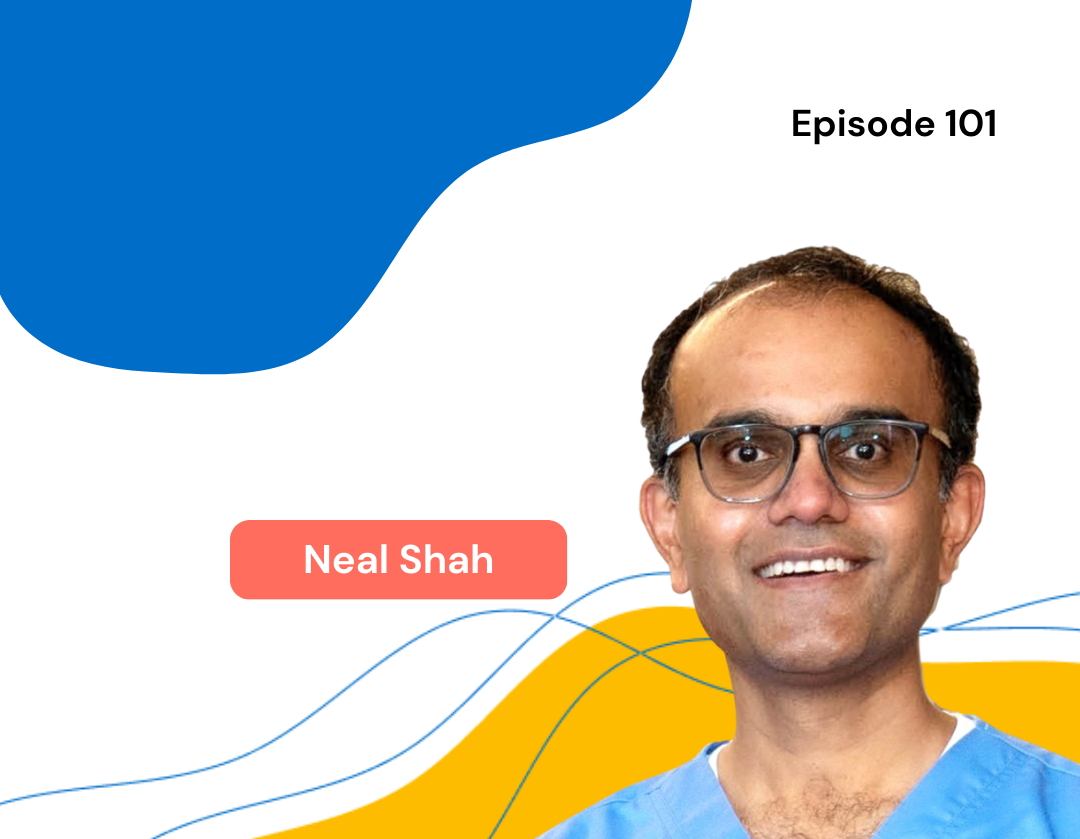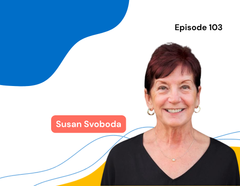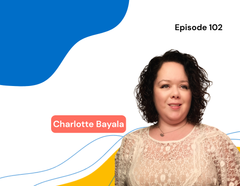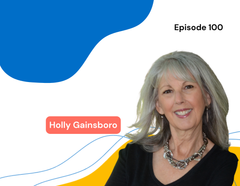When serious illness enters a family, the challenges aren’t just medical — they’re emotional, financial, and deeply personal. In this episode of The Patient from Hell, host Samira Daswani speaks with Neal Shah, a former hedge fund manager turned caregiver, social entrepreneur, and author, about what happens when health insurance doesn’t actually insure, and how patients and caregivers can fight back.
Neal’s journey began when he became the care coordinator for his grandfather living with dementia and cancer. But it was his wife’s diagnosis with aggressive triple-negative breast cancer in their 30s that transformed his life. Facing hospitalizations, an ICU stay, and near-death moments, Neal stepped away from his career to become her full-time caregiver. Today, with his wife in remission and their young daughter at home, Neal is on a mission to reform the broken care economy and expose the dangerous myths around health insurance.
The Biggest Myth About Health Insurance
“Health insurance means you’re covered in case of catastrophic illness. That’s the biggest myth,” Neal explains. “You are not covered. You are absolutely screwed — unless you enlist yourself, modern technology, and your community in the fight.”
For too many families, the promise of insurance evaporates the moment a serious diagnosis appears. Denied claims, astronomical bills, and endless appeals leave patients battling both disease and bureaucracy at the same time.
Neal & His Wife’s Story
Neal’s wife was diagnosed with triple-negative breast cancer — one of the most aggressive forms of the disease — at just 35 years old.
Over three years, she endured failed treatments, hospitalizations, and even a medically induced coma from complications. Neal was thrust into impossible roles: caregiver, medical decision-maker, financial planner, and emotional anchor.
“I felt completely unprepared,” he recalls. “I had to make life-or-death decisions for my wife without any preparation or advance directive in place. It was isolating, terrifying, and it changed my personality. I went from easygoing to constantly waiting for the shoe to drop.”
Against the odds, his wife survived — and five years later, they welcomed a healthy baby girl, a 5% miracle by medical probability.
Caregiving, Isolation, and Invisible Burdens
Neal is passionate about reframing how society views caregivers.
“There are 63 million Americans caring for loved ones with serious illness or disability,” he notes. “They are the largest healthcare workforce in the country, but invisible, unpaid, and unsupported.”
Caregivers often face:
- Social isolation — Friends fade away, and workplaces rarely offer the same empathy to caregivers as they do to patients.
- Career disruption — While patients often receive job protection during treatment, caregivers risk their careers when they step away to provide support.
- Emotional strain — From handling logistics to making medical decisions, caregivers carry both practical and moral weight, often without training or preparation.
Fighting Back: Weaponization of AI
One of the most urgent issues Neal raises is the role of AI in insurance claim denials.
“Insurers have weaponized AI,” he says. “Denials are now happening in a second, with no human oversight. Meanwhile, patients and doctors spend hours fighting appeals. It’s an unfair, asymmetric battle.”
But Neal believes AI can also empower patients. Through his nonprofit CareYaya, he helps families use AI tools to draft appeals, understand their rights, and push back — leveling the playing field against insurers.
Practical Advice for Patients & Caregivers
Neal’s key takeaways:
- Never pay the first bill — Denials can and should be appealed.
- Know your rights — Patients have a legal right to external review, but few know about it.
- Leverage technology — AI can help draft appeals and save hours of research.
- Build community — Isolation worsens stress; seek out support groups and networks.
From Finance to Advocacy
After leaving his hedge fund career, Neal now runs two social enterprises focused on caregiving and patient advocacy. He is also the author of Insured to Death: How Health Insurance Screws Over Americans and How We Take It Back, a call to action for patients and caregivers to fight systemic injustice with knowledge, community, and technology.
Learn more at CareYaya and connect with Neal on LinkedIn.
Listen to the Full Conversation
In the episode, Neal and Samira go deeper into:
- The financial toxicity of cancer and dementia care
- Why Medicare Advantage may actually disadvantage patients
- How caregiving reshaped Neal’s identity and career
- Why caregiving must be recognized as essential, not invisible
- Hope, resilience, and finding purpose after trauma
🎧 Listen to “The Myth of Coverage: Neal Shah on Caregiving, Health Insurance, and Fighting Back” on YouTube, Spotify, or Apple Podcasts.
About the Guest
Neal Shah is a former hedge fund manager who became a full-time caregiver during his wife’s cancer battle. Today, he is the founder of CareYaya, a social enterprise connecting families with affordable, medically trained caregivers, and the author of Insured to Death. Neal’s mission is to transform the caregiving economy, empower patients to fight back against unfair insurance practices, and build a culture where caregiving is recognized and valued.



